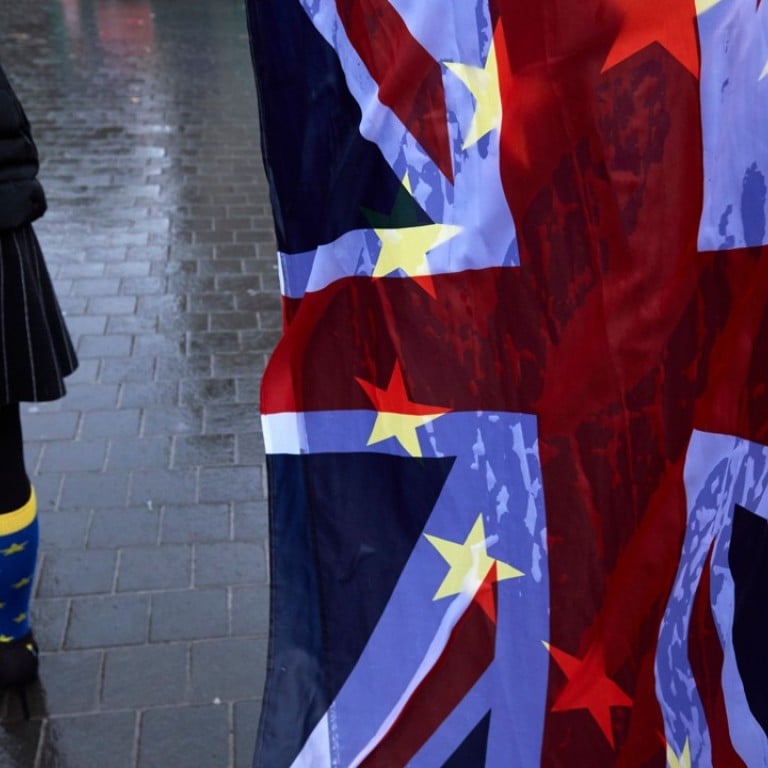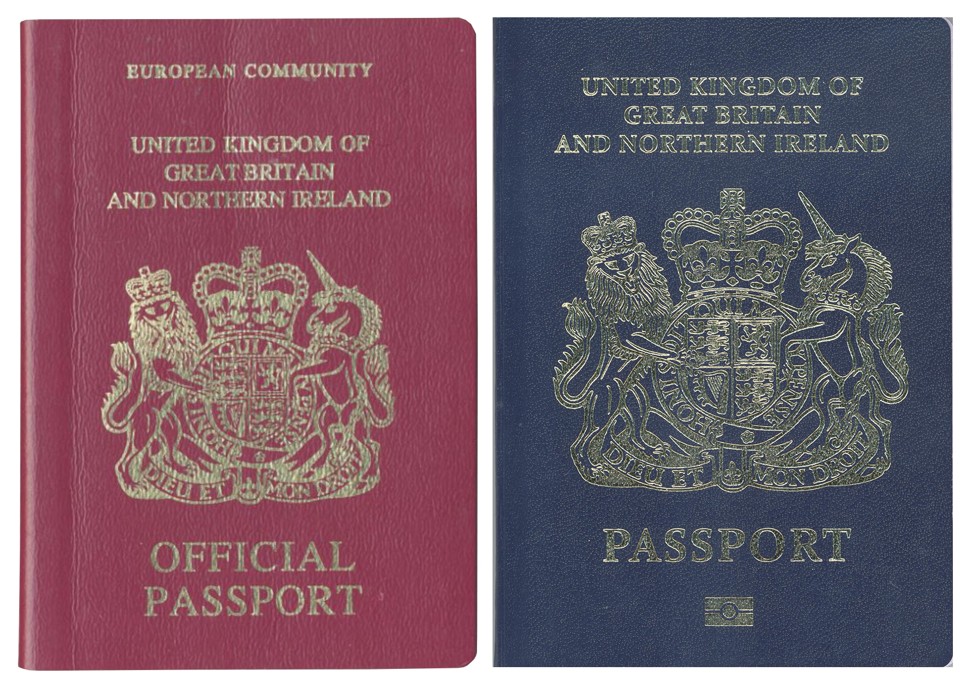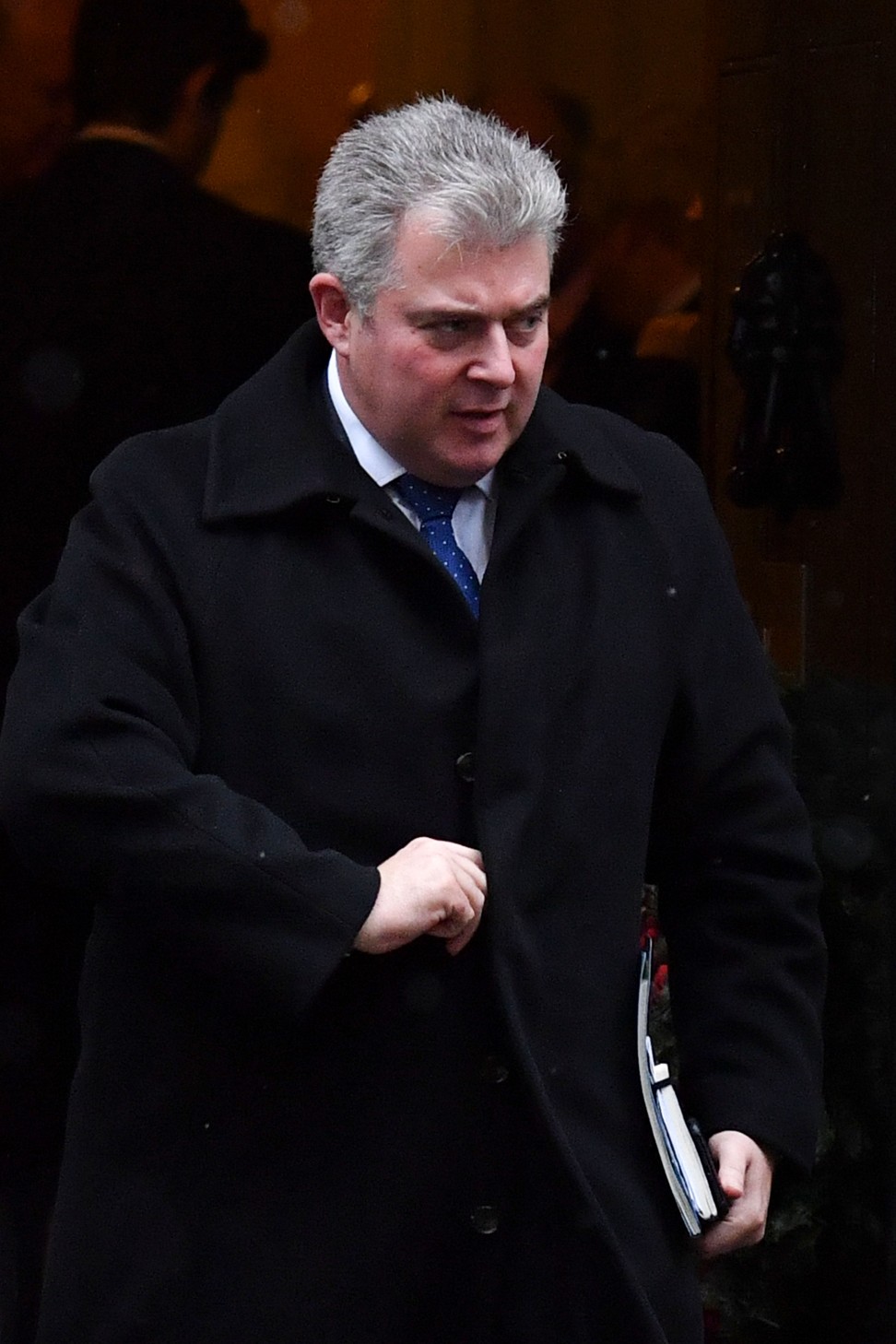
Brexit backers in Britain tout their passport – which looks like a ticket to a fantasy world
Kevin Rafferty says the stories the Britain-first crowd tell about a return to their old blue passport reflect their delusions about reclaiming their old place in a world that has moved on
Brandon Lewis, the immigration minister, boasted that the return of the “iconic blue and gold” British passport was part of “a unique opportunity to restore our national identity and forge a new path for ourselves in the world”.
Sure, I remember the great British blue and gold passport, though the gold tended to tarnish quickly and wear off. Lewis knows that this is not the passport post-Brexit Britain will return to.
Indeed, all that will happen with passports after 2019 is that the words “European Union” will be dropped and the cover colour will change from burgundy to blue.
The other lie on which Lewis and other supporters of the great British delusion rely is that the wicked European Union forced the United Kingdom to give up its old blue passport to conform with community rules. The so-called “iconic blue” British passport dates back only to 1921, and was introduced not because of a British decision, but because the League of Nations decided the previous year on the common size and standards for passports worldwide.
Britain has done no formal study on economic impact of Brexit, says minister
This first modern British passport only began in 1915, although the British Home Office traces passports back to letters of safe conduct issued in 1414.
Increasingly, despite the claims of Brexiteers to be rescuing British sovereignty through passports, Britain has to go along with increasingly exacting standards – machine readable, digital, biometric with a chip recording the holder’s data, all enjoined internationally.
The sooner clarity is provided in Brexit negotiations, the better
Boris Johnson breaks ranks with Brexit ‘vassal state’ warning
Passports are an illuminating example of the limitations of sovereignty – and the costly pretensions of Brexit. The referendum offered a deceptively simple but false choice – between the known world with all its faults and an illusory world at the end of the rainbow. It is distressing that the post-referendum debate in the UK has been largely based on the shifting sands of illusion. May set the tone with her imperial vision of a Britain as a friend to all the world and trading on its own terms with everyone.
The passport issue exemplifies the fact that the Brexiteers are still living in a world of make-believe, or maybe they are just lying to themselves and fellow Brits. If they cannot get small things like passports right, what hope is there for the main deal?
Kevin Rafferty, a former Osaka University professor and World Bank official, is a journalist who has edited daily newspapers in 30 cities worldwide



